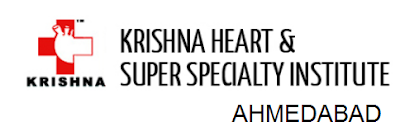This post is part of know how series. Let us understand more on healthy eating options and avoid heart failures.
Heart failure occurs when your heart muscle is unable to pump enough blood to meet your body's needs.
Since your heart cannot pump well your body holds on to salt and water.
Low Sodium Diet
· Sodium, also known as sodium chloride, common salt, table salt, or chemical compound NaCl
· Sodium causes the body to retain fluid. Excess fluid places additional strain on your heart.
· You must control the amount of salt you eat. Keep your salt intake to under 3000mg/day
If you are already on a diuretic, reduce intake to 2000mg/day
TIP: 1 tsp = 2400mg of sodium
Below are some tips on controlling your salt intake:
·
Read
food labels and buy brands with the lower mg of sodium per serving
·
Take
the salt shaker off the table
·
Salt
should not be used in food preparation or at the table
·
Avoid
processed foods (Example: ketchup or instant soups)
·
Avoid
medications that are sodium based (Example: antacids)
·
Watch
out for the words like: monosodium glutamate (MSG), soda (ex. baking soda), sodium
carbonate, sodium bicarbonate
· Substitute salt with other seasonings such as lemon juice, vinegar, herbs and spices, garlic or ginger
|
Foods That Are High in Salt |
Foods That Are Low in Salt |
|
Pickled
foods (olives, salsa, dips) Lunch
meats Instant
foods (pudding) Most
prepackaged foods (canned) Condiments
(soy sauce, ketchup, gravies) Cheeses
(especially cottage cheese) |
Fresh fruits and
vegetables Hot cereals
(oatmeal, but not instant) Unprocessed
meats, fish, poultry Unsalted cottage
cheese or milk Unsalted peanut
butter (unsalted nuts) Eggs |
Fluid Intake
The
basic strategy for fluid intake = avoid excessive fluid intake and keep intakes
consistent
- You need to limit your fluid intake. It is recommended that you drink no more than 4-8 cups or 1.0-2 litres per day. Measure and label your bowls and cups to help track your fluid intake.
- Fluids are anything that is liquid at room temperature.
- (Example: water, juices, ice cream, popsicles, watermelon, celery or soup are some examples)
- Juices, tea, fruit drink/punch, soda, and sports drinks all contain sodium, thus they should be consumed in moderation.











 Heart Health
Heart Health Healthy heart
Healthy heart